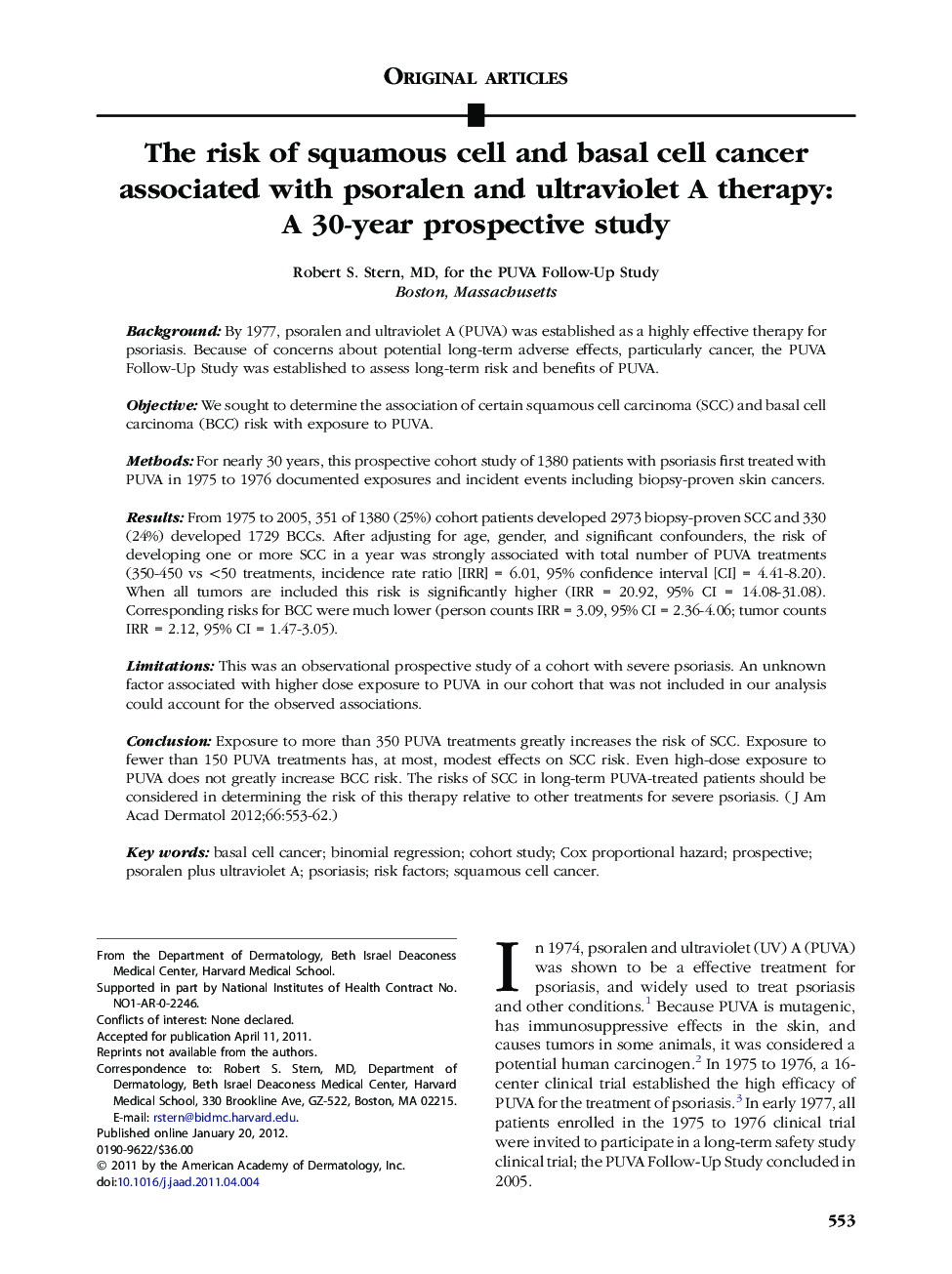| Article ID | Journal | Published Year | Pages | File Type |
|---|---|---|---|---|
| 3206640 | Journal of the American Academy of Dermatology | 2012 | 10 Pages |
BackgroundBy 1977, psoralen and ultraviolet A (PUVA) was established as a highly effective therapy for psoriasis. Because of concerns about potential long-term adverse effects, particularly cancer, the PUVA Follow-Up Study was established to assess long-term risk and benefits of PUVA.ObjectiveWe sought to determine the association of certain squamous cell carcinoma (SCC) and basal cell carcinoma (BCC) risk with exposure to PUVA.MethodsFor nearly 30 years, this prospective cohort study of 1380 patients with psoriasis first treated with PUVA in 1975 to 1976 documented exposures and incident events including biopsy-proven skin cancers.ResultsFrom 1975 to 2005, 351 of 1380 (25%) cohort patients developed 2973 biopsy-proven SCC and 330 (24%) developed 1729 BCCs. After adjusting for age, gender, and significant confounders, the risk of developing one or more SCC in a year was strongly associated with total number of PUVA treatments (350-450 vs <50 treatments, incidence rate ratio [IRR] = 6.01, 95% confidence interval [CI] = 4.41-8.20). When all tumors are included this risk is significantly higher (IRR = 20.92, 95% CI = 14.08-31.08). Corresponding risks for BCC were much lower (person counts IRR = 3.09, 95% CI = 2.36-4.06; tumor counts IRR = 2.12, 95% CI = 1.47-3.05).LimitationsThis was an observational prospective study of a cohort with severe psoriasis. An unknown factor associated with higher dose exposure to PUVA in our cohort that was not included in our analysis could account for the observed associations.ConclusionExposure to more than 350 PUVA treatments greatly increases the risk of SCC. Exposure to fewer than 150 PUVA treatments has, at most, modest effects on SCC risk. Even high-dose exposure to PUVA does not greatly increase BCC risk. The risks of SCC in long-term PUVA-treated patients should be considered in determining the risk of this therapy relative to other treatments for severe psoriasis.
